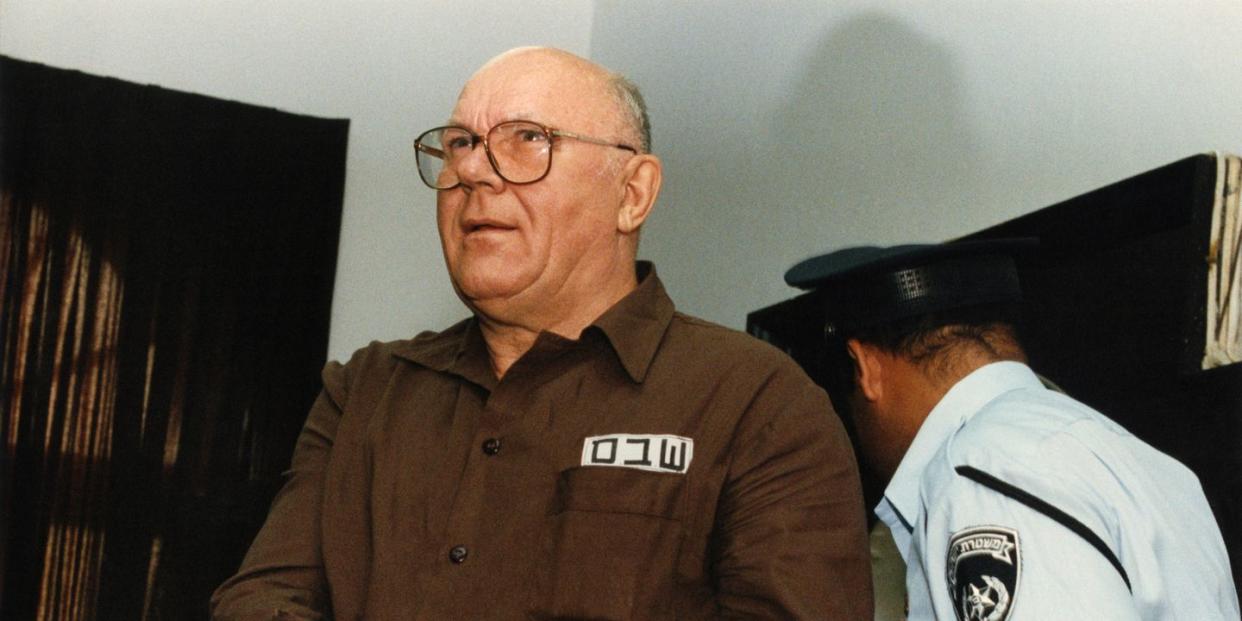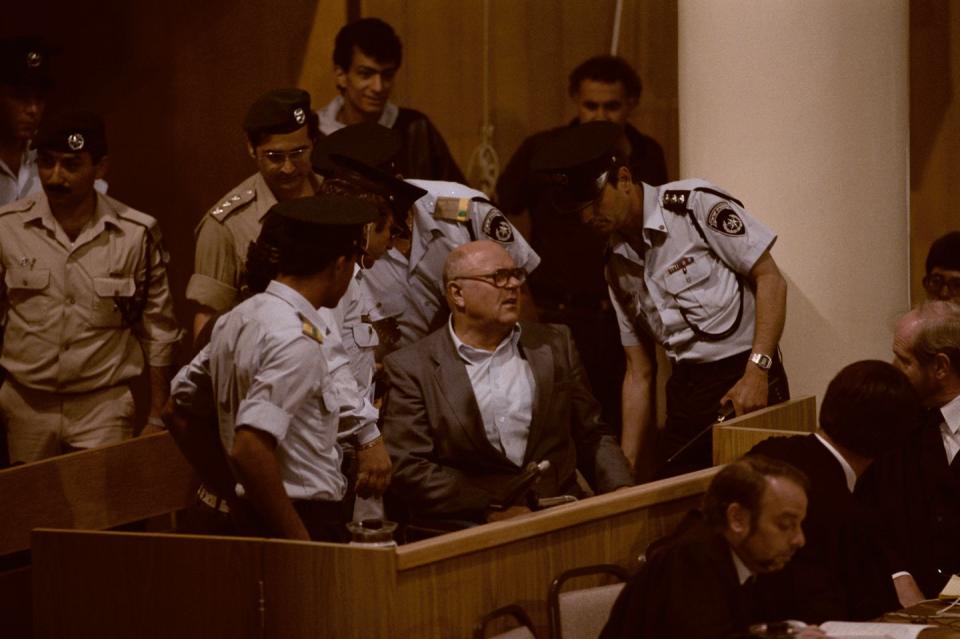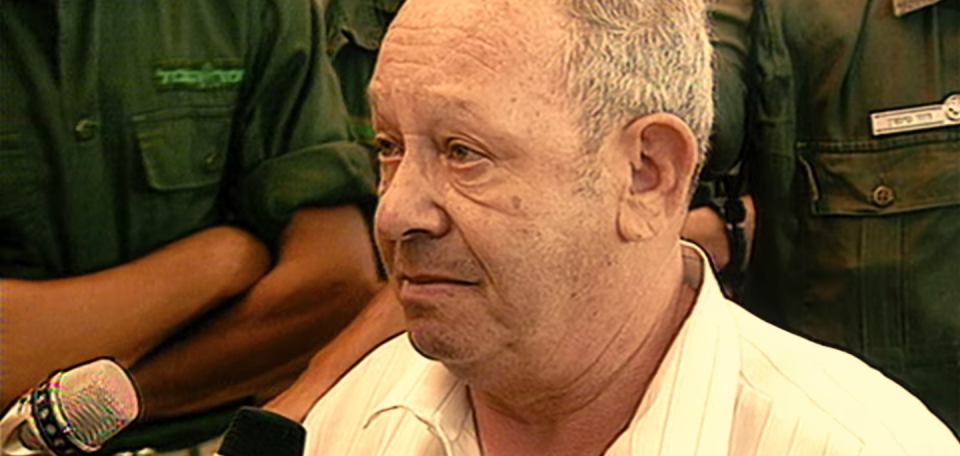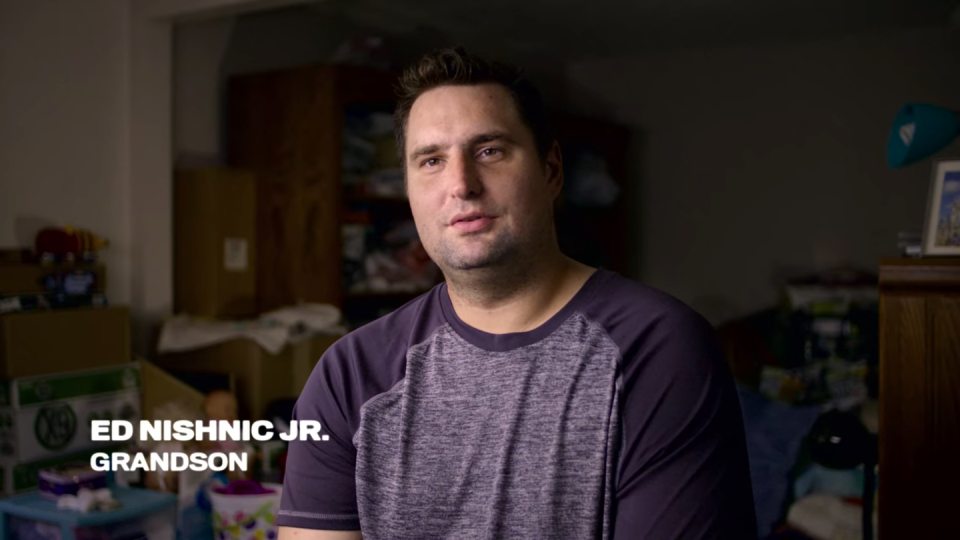Netflix's The Devil Next Door is asking the wrong questions

The Devil Next Door is Netflix's latest documentary that is almost too big to be confined by any one genre. It is, in a sense, a true-crime documentary. The crime? The government-led mass murder of millions of Jews, LGBTQ+ people, people with disabilities, Romani, Soviet civilians, and more. Aka The Holocaust.
Unlike many true-crime documentaries, however, a guilty verdict isn't where this story ends, far from it.
The Devil Next Door centres around one man, a Ukrainian named John Demjanjuk who for years lived as a mild-mannered auto-plant mechanic in Cleveland before being rumbled as a former Nazi camp guard and taken to court for his war crimes. Though convicted, he died while his request for an appeal was pending therefore in German law his presumption of innocence is upheld.

But Demjanjuk's story doesn't even end with The Devil Next Door. In addition to the continued legal battles surrounding Demjanuk's death, The Devil Next Door sets the stage for a hugely important question, which it then fails to ask.
What do we do with the legacy of people like John Demjanjuk?
In the last fifteen minutes of the series, the interviewer finally becomes vocal when he asks Demjanjuk's grandson Ed Nichnic Jr, who is bouncing his daughter on his knee, what he thinks of his grandfather, rumoured to be Ivan the Terrible and more-or-less confirmed to be a guard at the Sobibor death camp.
"I know he wasn't a bad man, I know he wasn't Ivan the Terrible. I know that he did what he had to do to survive, and that's good enough for me."
We're just going to let that sit for a second.

A whole documentary could have, and arguably should have, been made delving into this question, especially in our current political climate. Do the people who hold the legacy of someone like Demjanjuk have a responsibility to it?
No one wants their grandfather to be complicit in the murder of 28,000 Jews. But is it okay to chalk it up to 'it's okay because he did what he needed to do to survive'? Where The Devil Next Door succeeds as a documentary is in presenting this opinion without judgement or bias.
However, the visceral reaction to this conceit is to say no, it's not okay. But the US government said yes, it is.
Also in the last moments of the Netflix series, we're introduced to Elizabeth Holtzman, the founder of the US government's Office of Special Investigations. She describes how a man came to her claiming to have a list of Nazis the US government knowingly allowed into the country. Disbelief was her first reaction, but then she found out it was true.

Now famously, a NASA program called Operation Paperclip came under heavy scrutiny. Its team consisted of many Nazi party members and leaders. These men paved the way for America to win the space race against the Communist USSR.
When it came to hiring literal Nazis, president Truman was quoted as saying: "this had to be done and was done" which rings chillingly close to Ed Nichnic Jr's own sentiment.
When asked if he speculated about what his grandfather could have done, Nichnic Jr replied: "I can imagine what he could have done. But not just him, everybody in that situation. You, me, your friends, my friends. If you were put in that situation and you're given the choice between life and death, I mean what are you gonna pick? So, whatever he did, wherever he was, is insignificant to me."

It all begs the question: at what point does past wrongdoing outweigh any potential 'benefit' a person can give to society? For all intents and purposes, John Demjanjuk was a model American citizen when he arrived in the USA in 1952. He worked at a Ford plant, for heaven's sake! He had a picket fence, a wife, a family. He abided by all the tenets of the American dream. Likewise, the scientists in Operation Paperclip literally brought America to the moon.
So how do we look at their legacy? What does it mean for their families, for America, and society as a whole? It takes a hefty amount of cognitive dissonance to marry these two things: mass murderer and productive member of society.

The Devil Next Door could have explored this, and the fact that they didn't look at the modern-day impact of these decades-ago atrocities is made all the clearer in the recent reaction from Poland's prime minister to the Netflix series.
Mateusz Morawiecki called out the docuseries for using a World War II-era map which places concentration camps in Poland when the area was occupied by Nazi Germany. "The map shown in the series does not reflect the actual borders at that time," the Polish Ministry of Foreign Affairs tweeted.
.@Netflix, stay true to historical facts!
During the time which the “The Devil Next Door” series describes, Poland’s territory was occupied, and it was Nazi Germany who was responsible for the camps. The map shown in the series does not reflect the actual borders at that time. pic.twitter.com/W5i8C9THo3— Ministry of Foreign Affairs 🇵🇱 (@PolandMFA) November 10, 2019
Though it was probably an unhappy consequence, what PM Morawiecki accomplished by raising this issue was only further the very debate we're having, that The Devil Next Door didn't engage with.
The holocaust is the hottest potato of them all – who wants to accept responsibility, any responsibility, for being part of the Nazi war machine that delighted in the murder of millions? The unfortunate truth is that someone has to, and it has to be investigated because, as the series points out, the footsoldiers of genocide need to be held accountable because this is how genocides happen.

The confusion around whether John Demjanjuk was actually Ivan the Terrible and why was he convicted of crimes at Sobibor (though he was acquitted of crimes at Treblinka) only exacerbates the blurriness of that line.
It is the same point Taika Waititi makes in Jojo Rabbit. At what point do we draw the line between simply nodding and going along with something and actively participating in it?
Unfortunately, despite being a difficult but necessary watch, all The Devil Next Door did was leave this almost-question hanging in the last 15 minutes.
The Devil Next Door is available on Netflix.
Digital Spy is launching a newsletter – sign up to get it sent straight to your inbox.
Want up-to-the-minute entertainment news and features? Just hit 'Like' on our Digital Spy Facebook page and 'Follow' on our @digitalspy Instagram and Twitter accounts.
You Might Also Like

 Yahoo News
Yahoo News 
